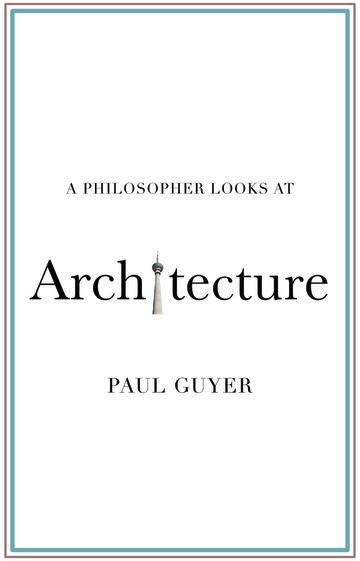
9 minute read
Philosophy
A Philosopher Looks at Architecture
Paul Guyer
Brown University, Rhode Island
Description
What should our buildings look like? Or is their usability more important than their appearance? Paul Guyer argues that the fundamental goals of architecture first identified by the Roman architect Marcus Pollio Vitruvius – good construction, functionality, and aesthetic appeal – have remained valid despite constant changes in human activities, building materials and technologies, as well as in artistic styles and cultures. Guyer discusses philosophers and architects throughout history, including Alberti, Kant, Ruskin, Wright, and Loos, and surveys the ways in which their ideas are brought to life in buildings across the world. He also considers the works and words of contemporary architects including Annabelle Selldorf, Herzog and de Meuron, and Steven Holl, and shows that – despite changing times and fashions – good architecture continues to be something worth striving for. This new series offers short and personal perspectives by expert thinkers on topics that we all encounter in our everyday lives.
Key Features
• Provides an overview of the history, nature and goals of architecture • Illustrates abstract philosophical and architectural ideas with many examples of buildings across the world • Broad and interdisciplinary in scope, with an accessible style and no technical jargon
Contents
Introduction; 1. Good Construction, Functionality, and Aesthetic Appeal: From Vitruvius to the Eighteenth Century; 2. The Meaning of Beauty: From Kant to Semper; 3. Multiplicity of Meaning in Twentieth-Century Theories; 4. Words and Works: Modern Architecture and Traditional Values; 5. Looking Forward.
Additional Information
Level: General readers, graduate students Series: A Philosopher Looks At
May 2021 198 x 129 mm 216pp 978-1-108-82042-4 Paperback £9.99 / US$12.99
A Philosopher Looks at Human Beings
Michael Ruse
Florida State University
Description
Why do we think ourselves superior to all other animals? Are we right to think so? In this book, Michael Ruse explores these questions in religion, science and philosophy. Some people think that the world is an organism – and that humans, as its highest part, have a natural value (this view appeals particularly to people of religion). Others think that the world is a machine – and that we therefore have responsibility for making our own value judgements (including judgements about ourselves). Ruse provides a compelling analysis of these two rival views and the age-old confl ict between them. In a wide-ranging and fascinating discussion, he draws on Darwinism and existentialism to argue that only the view that the world is a machine does justice to our humanity. This new series offers short and personal perspectives by expert thinkers on topics that we all encounter in our everyday lives.
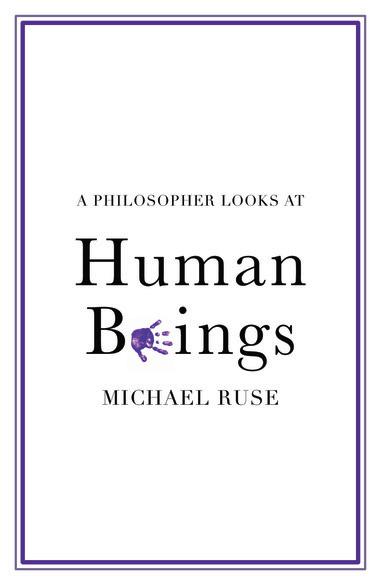
Key Features
• A clear, comprehensive picture of the fundamental debates surrounding the distinction between humans and other animals, perfect for the general reader but uncompromising with respect to scholarship • Inherently interdisciplinary, drawing on ideas in ethics, biology, the history of science and theology • Argues strongly that evolutionary theory, especially Darwin’s theory of evolution through natural selection, should play a central role in philosophical discussions about biology and ethics
Contents
Introduction; 1. The status of humans; 2. Mechanism versus organicism; 3. Darwinian evolution; 4. Mechanism and human nature; 5. Organicism and human nature; 6. The problem of progress; 7. Morality for the organicist; 8. Morality for the mechanist; Epilogue.
Additional Information
Level: General readers, graduate students Series: A Philosopher Looks At
May 2021 216 x 138 mm 222pp 978-1-108-82043-1 Paperback £9.99 / US$12.99
Previous editions sold in Croatian, German, Korean, Polish, Portuguese (Portugal), Spanish and Turkish.

A Philosopher Looks at Sport
Stephen Mumford
Durham University
Description
Why is sport so important among participants and spectators when its goals seem so pointless? Stephen Mumford’s book introduces the reader to a host of philosophical topics found in sport, and argues that sports activities reflect diverse human experiences – including important values that we continue to contest. The author explores physicality, competition, how sport is best defined, ethics in sport, and issues of inclusion such as disability sports, the gender divide, and transgender athletes. His book is written for anyone who is thoughtful, a sports enthusiast, or both, and will deepen our understanding of sport and its place in our lives. This new series offers short and personal perspectives by expert thinkers on topics that we all encounter in our everyday lives.
Key Features
• Clearly and accessibly written • Explores the importance of sport in a good life • Up-to-the-minute discussions of issues including gender in sport
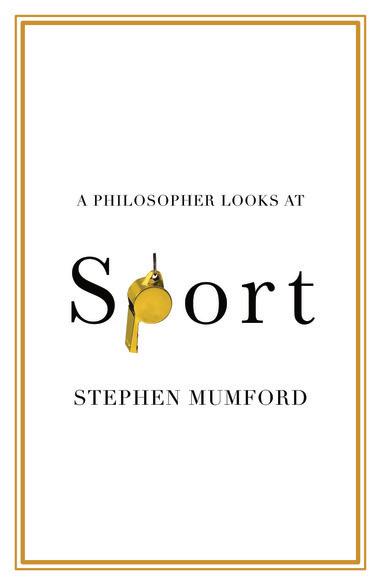
Contents
1. Physicality; 2. Competition; 3. Definition; 4. Spectacle; 5. Ethics; 6. Inclusion.
Additional Information
Level: General readers, graduate students Series: A Philosopher Looks At
May 2021 198 x 129 mm 150pp 978-1-108-99493-4 Paperback £9.99 / US$12.99
A Philosopher Looks at Work
Raymond Geuss
University of Cambridge
Description
Is work as we know it disappearing? And if so why should we care? These questions are explored by Raymond Geuss in this compact but sweeping survey which integrates conceptual analysis, historical reflection, autobiography and social commentary. Geuss explores our concept of work and its origins in industrial production, the incentives and compulsions which societies use to get us to work, and the powerful hold which the work ethic has over so many of us. He also looks at dissatisfaction with work – which is as old as work itself – and at various radical proposals for doing away with it, and at the seemingly irreversible growth of unemployment as a result of mechanisation. His book will interest anyone who wishes to understand the place of work in our world. This new series offers short and personal perspectives by expert thinkers on topics that we all encounter in our everyday lives.
Key Features
• Analyses our conception of work and seeks to explain its enormous power in societies past and present • Examines the reasons for dissatisfaction with work and surveys the many proposals throughout history for reforming or even eliminating it • Considers the ways in which the nature of work is changing, and suggests alternative ways of thinking about how to accommodate it

Contents
1. What is Work?; 2. The Organisation of Work; 3. The Anthropology and Economics of Work; 4. Radical Discontent and the Future of Work.
Additional Information
Level: General readers, graduate students Series: A Philosopher Looks At
May 2021 198 x 129 mm c.150pp 978-1-108-93061-1 Paperback £9.99 / US$12.99
Ethics and Animals
An Introduction Second edition Lori Gruen
Wesleyan University, Connecticut
Description
In this comprehensive updated introduction to animal ethics, Lori Gruen weaves together poignant and provocative case studies with discussions of ethical theory, urging readers to engage critically and refl ect empathetically on our relationships with other animals. In clear and accessible language, Gruen discusses a range of issues central to human-animal relations and offers a reasoned new perspective on key debates in the fi eld. She analyses and explains a range of theoretical positions and poses challenging questions that directly encourage readers to hone their ethical reasoning skills and to develop a defensible position about their own practices. Her book will be an invaluable resource for students in a wide range of disciplines including ethics, environmental studies, veterinary science, gender studies, and the emerging fi eld of animal studies. The book is an engaging account of animal ethics for readers with no prior background in philosophy.
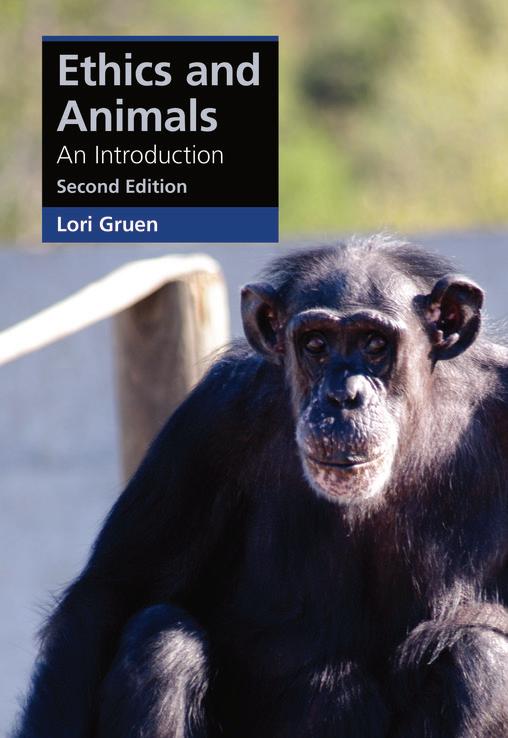
Key Features
• Introduces readers to the range of relationships humans are in with other animals, and how we can think of these relationships through an ethical lens • Includes case studies designed to help work through philosophical issues • Presents a thoughtful examination of the key arguments at the centre of animal ethics
Contents
1. Why animals matter; 2. The natural and the normative; 3. Eating animals; 4. Experimenting with animals; 5. Dilemmas of captivity; 6. Animals in the wild; 7. Action for Animals.
Additional Information
Level: Graduate students, academic researchers Series: Cambridge Applied Ethics
August 2021 244 x 170 mm 272pp 978-1-108-83368-4 Hardback £79.99 / US$105.00
Russian rights sold. Previous editions sold in Japanese.

Ethics and Engineering
An Introduction
Behnam Taebi
Delft University of Technology
Description
The world population is growing, yet we continue to pursue higher levels of well-being, and as a result, increasing energy demands and the destructive effects of climate change are just two of many major threats that we face. Engineers play an indispensable role in addressing these challenges, and whether they recognize it or not, in doing so they will inevitably encounter a whole range of ethical choices and dilemmas. This book examines and explains the ethical issues in engineering, showing how they affect assessment, design, sustainability, and globalization, and explores many recent examples including the Fukushima Daiichi nuclear disaster, Dieselgate, ‘naked scanners’ at airports, and biofuel production. Detailed but accessible, the book will enable advanced engineering students and professional engineers to better identify and address the ethical problems in their practice.

Key Features
• Provides examples of recent developments in engineering, as well as recent problems • Focuses on design and assessment in engineering • Sheds light on the international aspects of ethics and engineering, particularly with respect to climate change and energy
Contents
1. Ethics and engineering: an ethics up-front approach; Part I. Assessment and Evaluation in Engineering: 2. Risk analysis and the ethics of technological risk; 3. Balancing costs, risks, benefits, and environmental impacts; Part II. Ethics and Engineering Design: 4. Values in design and responsible innovation; 5. Morality and the machine; Part III. Engineering Ethics, Sustainability, and Globalization: 6. Sustainability and energy ethics; 7. Engineering ethics in the international context: globalize or diversify?.
Additional Information
Level: Undergraduate students, graduate students Series: Cambridge Applied Ethics
May 2021 244 x 170 mm 250pp 978-1-107-17753-6 Hardback £74.99 / US$99.99
Understanding Genes
Kostas Kampourakis
Université de Genève
Description
What are genes? What do genes do? These questions are not simple and straightforward to answer; at the same time, simplistic answers are quite prevalent and are taken for granted. This book aims to explain the origin of the gene concept, its various meanings both within and outside science, as well as to debunk the intuitive view of the existence of ‘genes for’ characteristics and disease. Drawing on contemporary research in genetics and genomics, as well as on ideas from history of science, philosophy of science, psychology and science education, it explains what genes are and what they can and cannot do. By presenting complex concepts and research in a comprehensible and rigorous manner, it examines the potential impact of research in genetics and genomics and how important genes actually are for our lives. Understanding Genes is an accessible and engaging introduction to genes for any interested reader.
Key Features
• Analyzes and clarifies the gene concept, which is inherently difficult to define and which has been presented in distorted ways in the public sphere • Presents contemporary genomics research, discussing both its successes and its limitations, clarifying what is and what is not currently possible to know about genes • Discusses the use of metaphors in science and how these should and should not be used
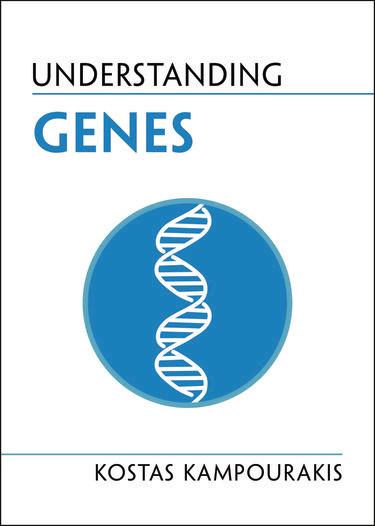
Contents
1. The Public Image of Genes; 2. The Origin and Evolution of the Gene Concept; 3. The Devolution of the Gene Concept; 4. There are No ‘Genes For’ Characteristics or Disease; 5. What Genes ‘Do’; 6. The Dethronement of Genes.
Additional Information
Level: General readers, undergraduate students Series: Understanding Life
October 2021 178 x 127 mm c.230pp 978-1-108-81282-5 Paperback £11.99 / US$14.95










